Trending
Opinion: How will Project 2025 impact game developers?
The Heritage Foundation's manifesto for the possible next administration could do great harm to many, including large portions of the game development community.
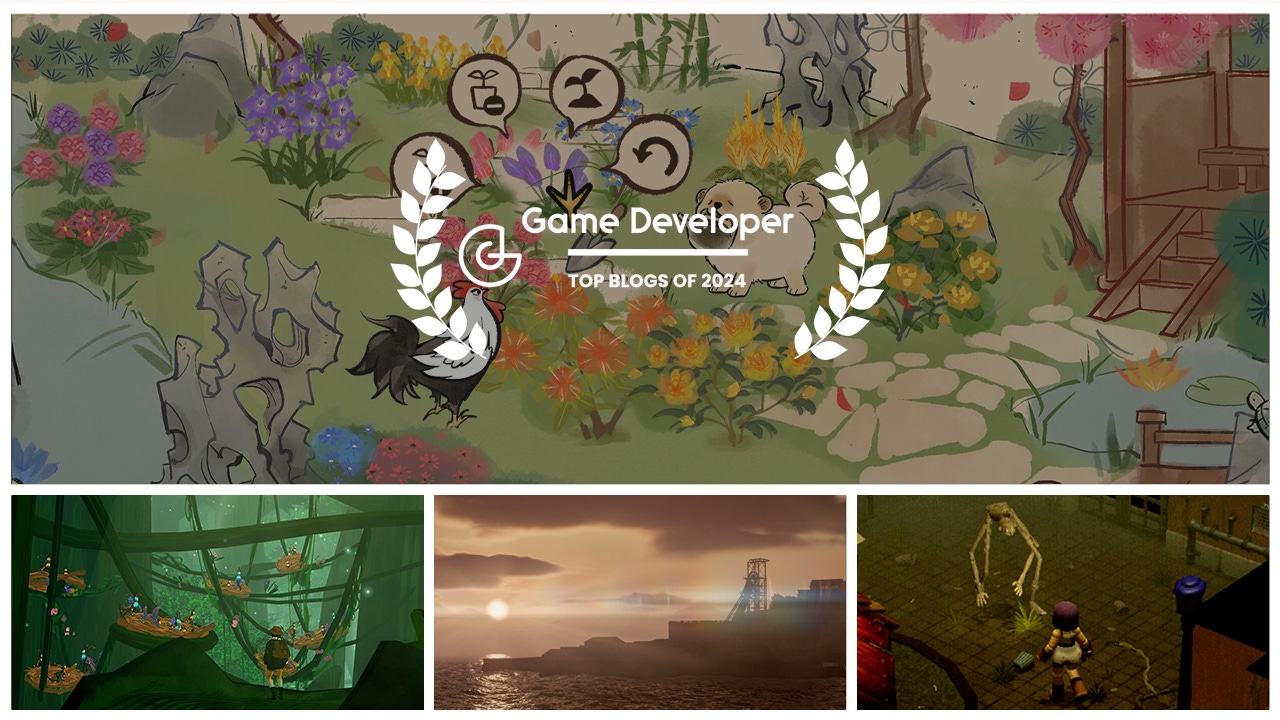
Game Developer is a lot like AM/PM: too much good stuff.
This year, that was more true than ever. In 2024, we featured behind-the-scenes insights from developers working on games of every scope from studios of every size, the most popular of which reflected the community’s needs in the face of an ever-shifting development climate. They included advice for alternative development toolsets, free tools and libraries for indie developers, and advocacy for improved conditions for game developers.
Here’s the best of what our featured blog section had to give in 2024.
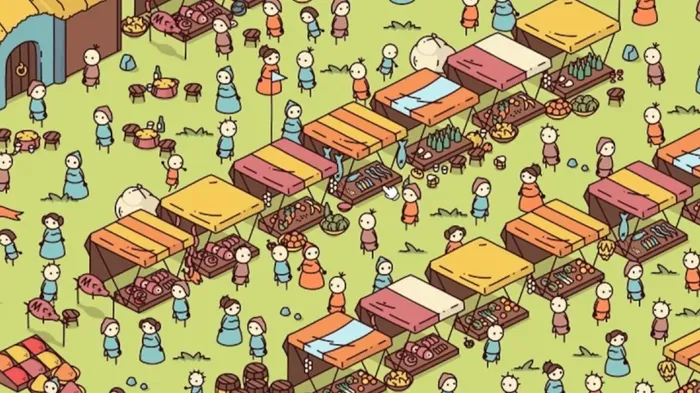
By Alex Wiserax
“Major game studios, which once produced fantastic games remembered by players decades later, sometimes devolve into bureaucracy and business, forgetting their original purpose. They turn games into lifeless, dull copies of the original. You download such a game—the graphics are beautiful, there are no bugs, and the story progresses along familiar lines, but something feels off. You may not realize it right away, but subconsciously, you sense: the game has no soul. It’s just another product on the conveyor belt, created to maximize profits but not to give players a truly engaging and memorable experience. The goal is to create something that touches players, that they’ll discuss with friends and want to relive.”
In this comprehensive, seven-chapter overview, game economy designer Alex Karpenko explains the world of game economy and balance, breaking down its components and establishing how to create an economy that not only generates income but also gives the players a truly enjoyable experience.
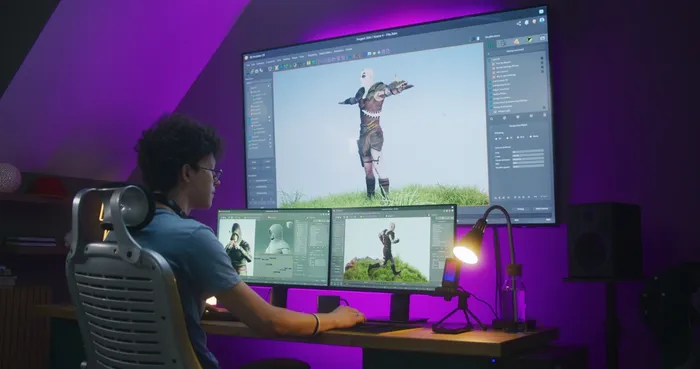
By Maxim Kiselev
“Successful game development is nothing without the right tools and libraries. Even the brightest, most creative minds need robust tech to make their ideas come to life. Thankfully, we’ve reached a point of abundance, where for any task–there is a tool.”
Tools! Get your tools here! If you’re a solo or indie dev, this is the rundown for you. Author Maxim Kiselev lists and comprehensively explains the tools available for game development, including game engines, audio tools, graphics and art tools, programming tools and IDEs, version control systems, and libraries and middleware. This article explains what each of the available resources are, what their strengths are and where to find them, all in one spot. Read it to find out what your best options are before starting your first project.
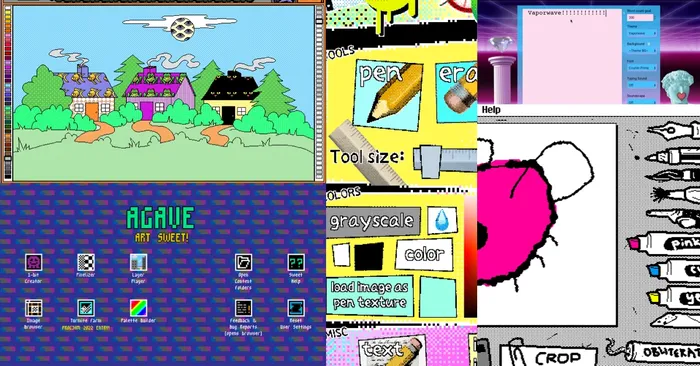
By Nathalie Lawhead
“Embrace software that is about personal expression, because that’s at the heart of what art is all about!”
Not all game development tools are Blender, Unity or FMOD. Some are strange little playthings that seem to have a mind of their own. In this post, indie developer Nathalie Lawhead celebrates some of the less conventional options, commenting on the weird beauty of making art on the computer, how some experimental tools leave their unintended and bizarre mark on your work and why that can be liberating and empowering.

By Christopher Gerteis
“While commercial games often succeed as narrative devices, they frequently prioritize gameplay over historical accuracy. This approach, driven by the commercial pressures of the gaming industry, can lead to a superficial engagement with historical material.”
Rooting your video games in historical events can be a great way to engage your audience. Artistic license, however, made in service of commercial viability, can often rob depictions of their nuance and can even be insensitive or misleading. In this piece, historian Christopher Gerteis draws from his first-hand experience in historiographical video game design to make the case for more direct collaboration between game developers and historians.
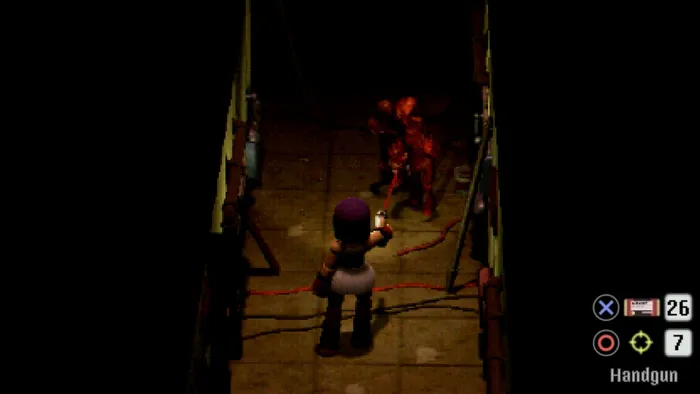
By Adam Vian
“People will often say Crow Country has 'clunky' aiming and shooting controls. Clunky combat in general. Sometimes it's a compliment, other times a complaint, other times just a neutrally stated fact. But whenever I get the chance, I like to call them up on it and ask what exactly they mean, because I'm honestly curious. What is Crow Country not doing that it could or should be doing? What makes it clunky?”
In this essay, designer Adam Vian examines the popular commentary around his retro horror game Crow County, dissecting the passive and active influences of Resident Evil that have come to define the game’s look and feel.

Image via Abby Chung.
By Mikhail Vershinin
“An animator's work is like an assembly line: we create animations gradually, adhering to each step of the process, while still maintaining a creative approach and originality in every detail.”
Take a comprehensive approach. Find positives in your own work. Use references. Never be afraid to start over. If you’re looking to sharpen your animation skills, then read this article, in which animator Mikhail Vershinin lays out some of the most common errors and how to immediately improve your work, building upon Disney’s 12 principles of animation.

Image via Soumil Kumar.
By Brandon Dillon
“Something must change. Games that require massive teams are unsustainable and will hit an economic limit that will force studios to scale back, hurting teams and failing to meet player expectations. This will lead to stagnation and decline or has already.
If you’re a developer at a traditional studio, and you have ideas for newer, smaller concepts the studio can pursue, pitch them! Your studio needs to find new paths. If new paths don’t seem possible, keep an eye on the growth potential for the studio’s existing projects and make your own evaluation of the long-term sustainability of the studio’s approach.”
Video games are now one of the most popular entertainment mediums in the world. Almost everybody games. The problem with that is the only avenue for growth at this point is population growth. And with the industry’s inability to keep up with the tremendous leaps and bounds of technology, game production costs are skyrocketing. AI will never be able to bridge the gap and fully address our efficiency needs. The only solution? Scale back. Here’s why it’s time to start making smaller games.

Image via Mizuno K.
By Rogelio Delgado
“As currently implemented, art tests fail to capture the full scope of an artist’s capabilities and often do more harm than good. While they might be appropriate in certain, limited circumstances, the industry needs to rethink how these tests are used. By focusing on portfolios, interviews, and more tailored approaches, we can create a fairer, more inclusive, and effective hiring process that respects the time and talent of all candidates.”
Art tests aren’t just time-consuming and wasteful; they’re also often ineffective at assessing an artist’s skill and style. Here, Rogelio Delgado argues that the games industry needs to adapt a new process that better reflects the collaborative process of the medium.
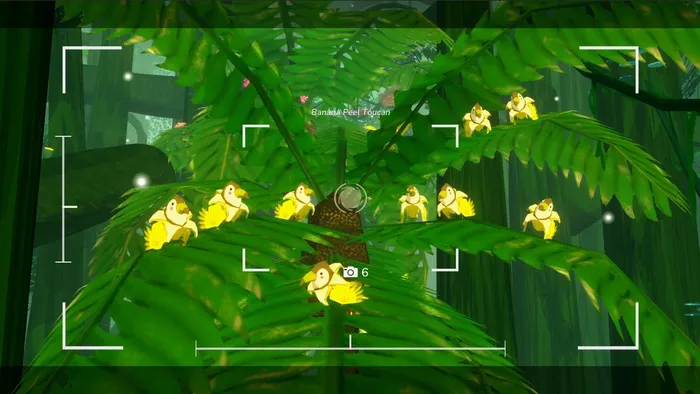
By Michelle Olson
“While scoring photos as a mechanic does provide extra feedback on the player’s actions, and can create ways for content to be gated or progression to be measured, it creates a very specific mindset when one is taking photos in the game. To me, this type of photography feels more like client work, rather than artistic expression.
I think it’s important to ask ourselves as designers of photography games - do I want this to feel like client work? Or do I want this to feel like artistic expression? Either is appropriate, so long as we are deeply intentional about it.”
As part of Game Developer’s Photography Week, Beasts of Maravilla developer Michelle Olson delved into various approaches to measuring player success in photography games, using the flaws of Pokemon Snap as a primary example, and exploring what her team did differently in Beasts of Maravilla Island. Olson also challenges developers to dig deeper into the common design pattern of scoring a player’s photographs, and assess the mechanic of photography at its core.
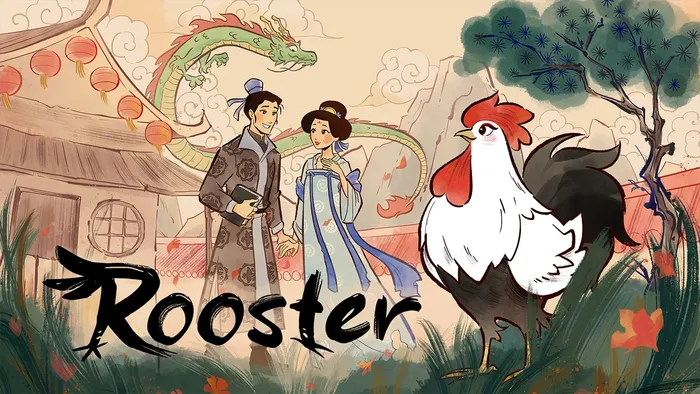
By Deborah Chantson
“Interactivity is the pinnacle of what we do in developing video games. We need diverse games to keep surprising audiences and ourselves. With no shortage of content and every studio and game vying for a spot in the limelight, cultural edge is a great place to start.”
Rooster developer Deborah Chantson says there are many benefits to using your personal story as the basis of a game, but there’s also a way to do it right. Hire professionals who understand the cultural shorthand, ignore the “risk” of a so-called “niche” topic, and embrace poetic license to help establish structure. Read her article and learn what she values from the experience and why she felt her team was the right one to tell this particular story.
Demystifying 3D Character Rigging for Games
By Hannah George
“In collaboration with one of our senior rigging and groom artists, we aim to demystify this craft and provide in-depth insights into the process of rigging characters for games.”
The graveyard of features in games: when stuff that seemed promising just doesn't work
By Boris Burangulov
“Just because another game successfully implements a feature, doesn’t mean it’s right for yours. But that doesn’t stop us from trying! Still, not everything works, and sometimes, even failed features can linger. In this post, we pull back the veil and look at our graveyard of features.”
The illusion of skill: how to make a better game in less time
By Casey Weeks
“Playtesting helps you make a better game in less time.”
Changeable Minds
By Jon Ingold
“Separating event tracking from character knowledge.”
Studio global presence in game development as competitive advantage
By Arthur Mostovoy
“Once you realise the importance of having a robust and adaptive framework and implement a similar structure into your operational approach, your workflow will become unmatched.”
Every Game Has the Community It Deserves
By Rhys Frampton
“If game designers are to have any success combating toxicity, we must acknowledge that our own design choices are often the underlying systemic cause, and that it is our responsibility to change them.”
Why Doesn't Everyone See the Importance of Preserving Our Past?
By Warren Spector
“The Entertainment Software Association recently came out against the preservation of past games. This short post is a plea for common sense and a recognition of the importance of videogame history.”
Predatory tactics in gaming are worse than you think
By Adrien Laurent
“I want to shed light on a tactic that involves collecting data as you play, feeding this data into complex algorithms and models that then alter the rules of your game under the hood to optimize spending opportunities.”
Balancing creativity and deadlines in game development
By Arthur Mostovoy
“The article offers a framework for managers to balance creativity and deadlines, ensuring the timely delivery of a great game.”
By Robert Green
“An attempt to reframe the discussion about Game Pass and other game subscription services.”
Thank you for exploring the year’s can’t-miss Featured Blogs with us! This article is one of many 2024 reflections hitting Game Developer this month, with more to come! For even more thoughts and insights on the best of 2024, check out our Game Developer’s 2024 Wrap-Up keyword to catch up on all our End of Year content.
Read more about:
Game Developer's 2024 Wrap-Up: Top Games, Devs, and TrendsBlogsFeatured BlogsTop StoriesFeaturesGame Developer EssentialsYou May Also Like